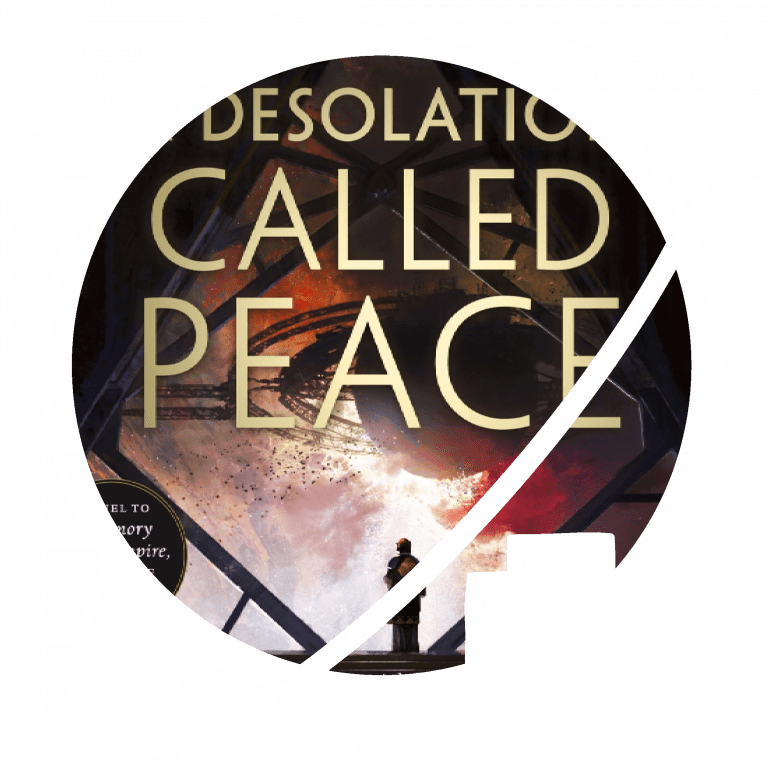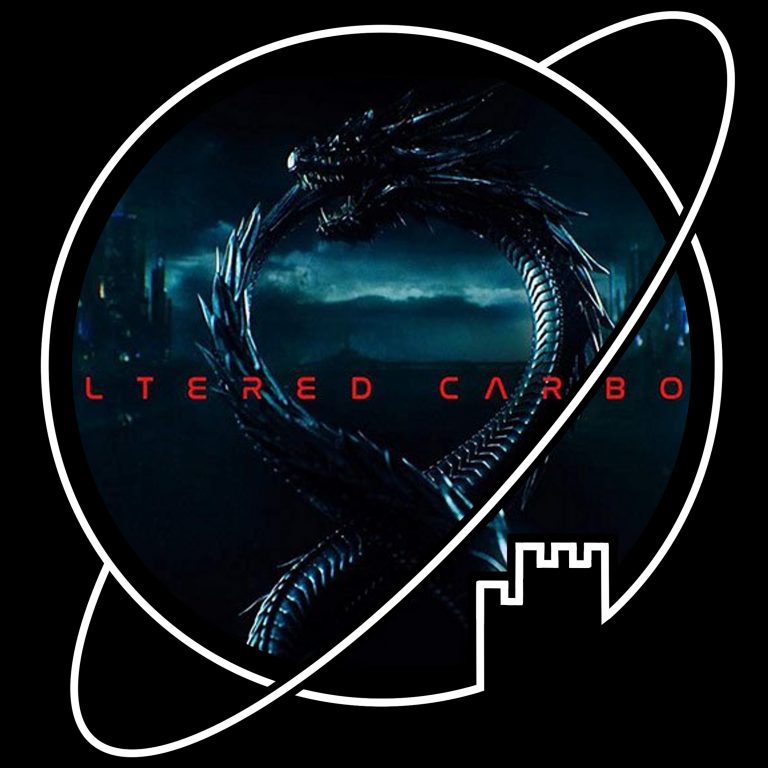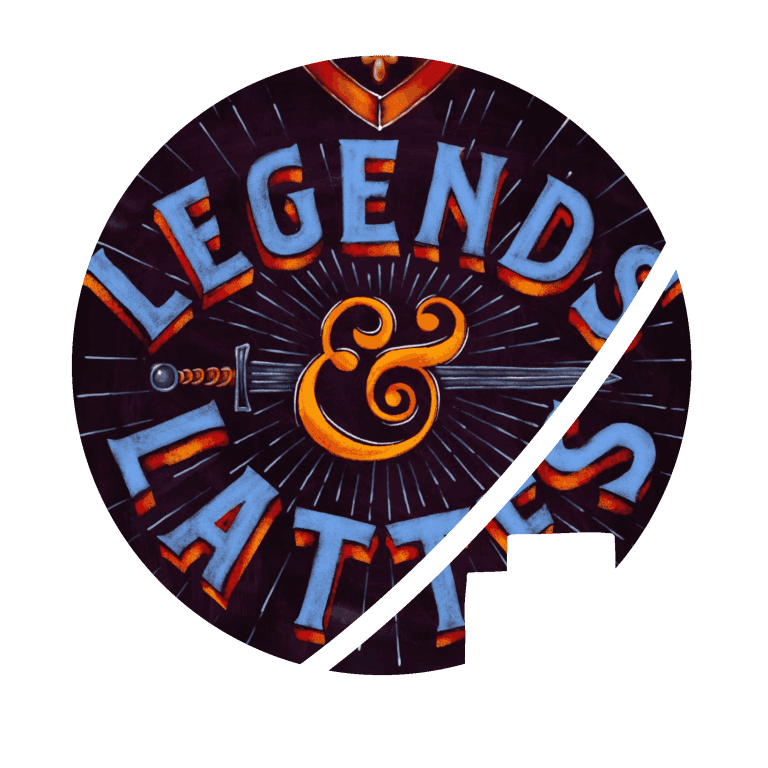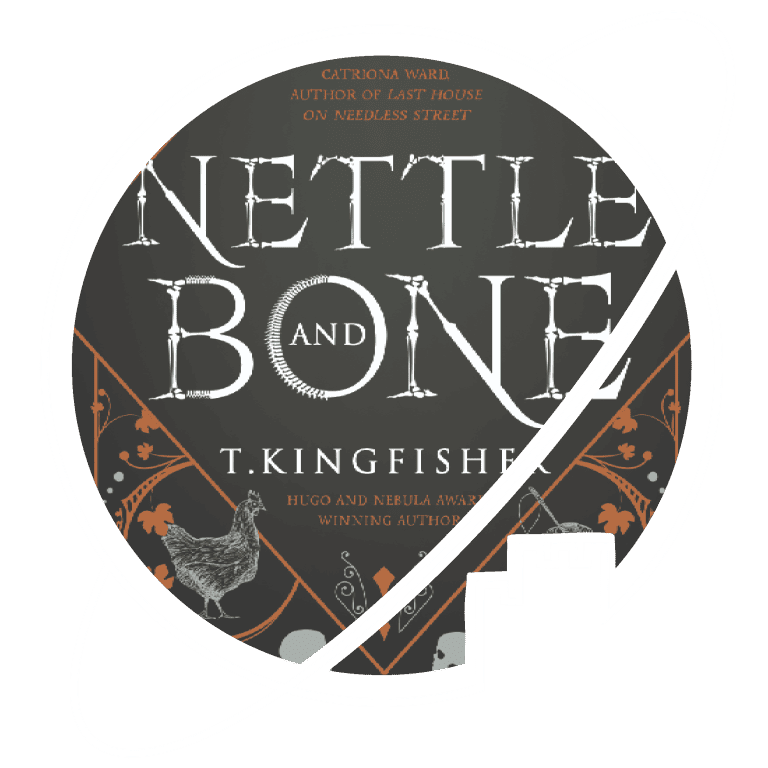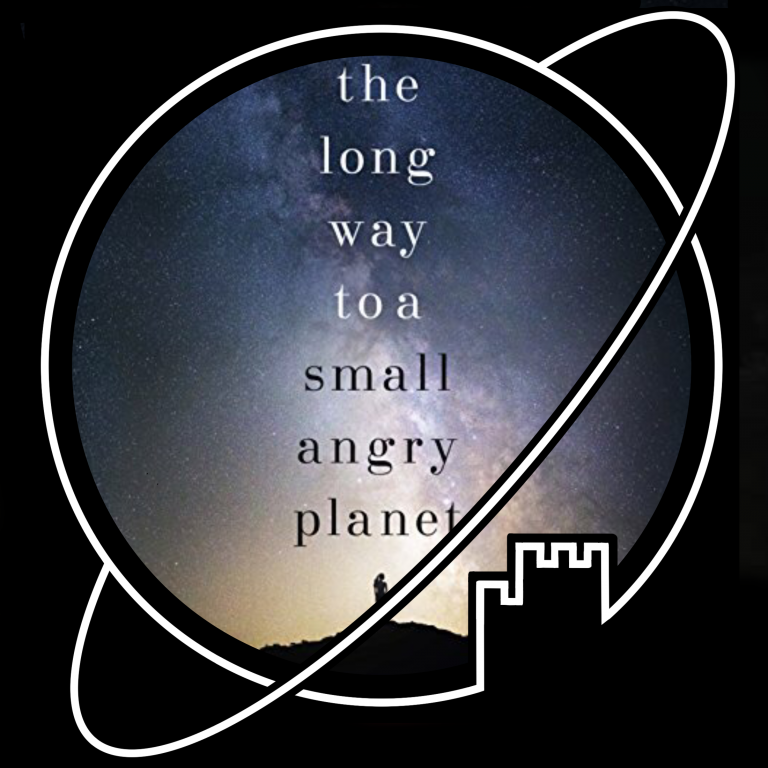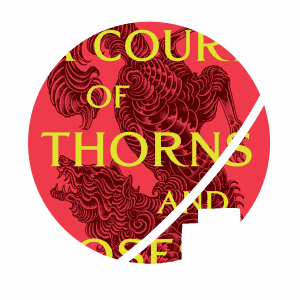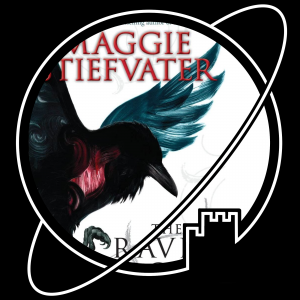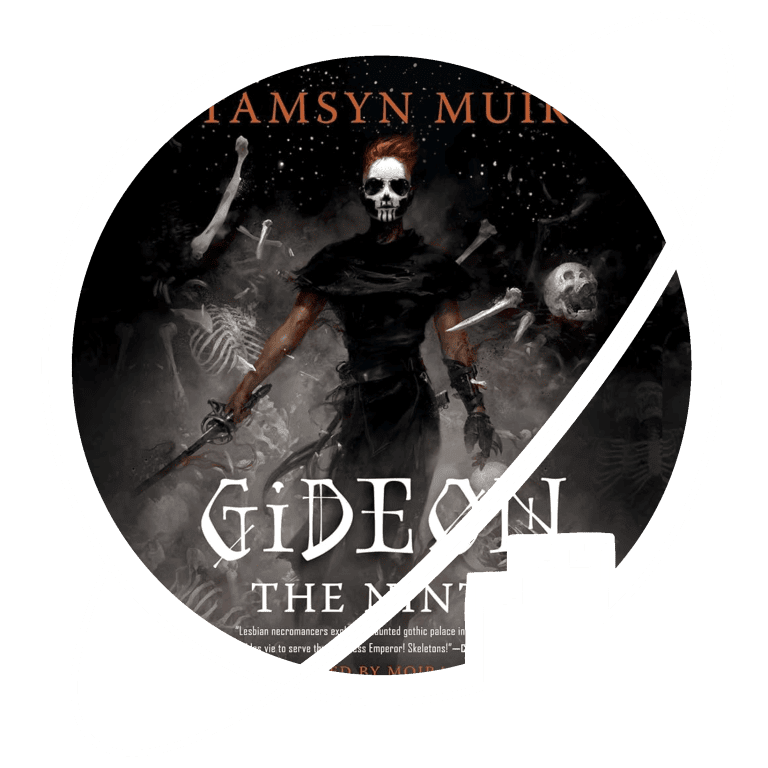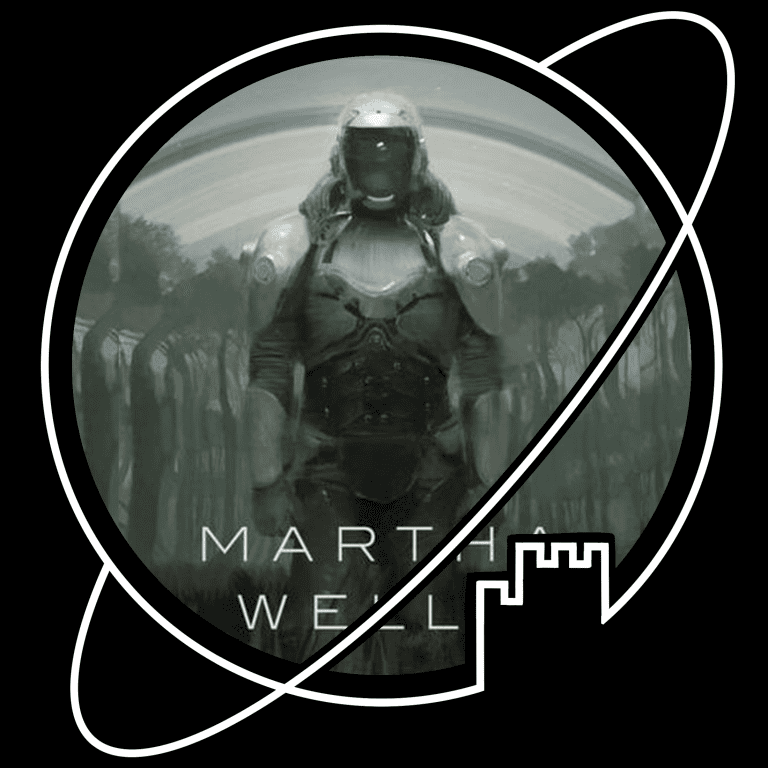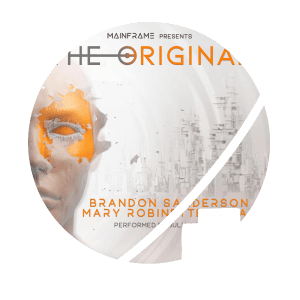Welcome to the Escape Velocity Collection!
We are an opinionated group of friends reviewing all sorts of fantasy and science fiction media. Don’t forget to get to know the curators and visit our curated Collection, where we discuss the stories that never cease to transport us to another world.
Will you escape with us?
LATEST POSTS:
- Book written by Robert A. Heinlein
- Published 5 November 1959
- Standalone


The Paul Verhoeven movie is probably better known than Heinlein’s novel, but Starship Troopers is just as much a classic in print sci-fi as it is in Hollywood blockbusters.
The stories are completely different, however.
Where the movie is an angry commentary on the futility of dying for a fascist government, the novel is probably best described as salivating over how cool super-trained human soldiers in power armour can be. Basically, Warhammer 40.000 without the irony (so… just modern 40k then?).
Starship Troopers glorifies the military, and it is clearly intended for an audience that likes that. It’s also very conservative in its philosophy (though I’ve also heard it described as libertarian – I guess it doesn’t neatly fit in one box. For example, race is depicted as a non-issue for once). I’m not going to lie, it fits in a certain societal niche so well it made me slightly uncomfortable at times. Then again, the book was written in the 1950s and Heinlein has been dead for over three decades so it is probably best to look at it with some distance.
Political message aside, I think Starship Troopers is actually well-written, if perhaps overly detailed on military organisation. It has surprisingly easy-flowing prose for the level of detail, and is well-paced overall due to a couple of nice flashback scenes.
Starship Troopers builds tension well, especially towards the drops Johnny participates in, and releases tension well when he returns to safety. Starship Troopers reads like a WWII diary, except Johnny Rico is fighting Bugs on Klendathu rather than Germans in the Ardennes or the Japanese in the Pacific.
And that’s its strength as well as its weakness. The enemies are Bugs and the Mobile Infantry suits are cool, but apart from that… it’s just a novel about a guy in an imaginary war that makes war seem really cool. Yes, there is some discussion of philosophy and moral virtue, but it is really heavy-handed and kind of juvenile, to be honest. It makes you wonder whether Heinlein somehow felt like he ‘missed out’ due to leaving the US Navy ahead or WWII.
While Starship Troopers has been influential, I don’t really think it a necessary read in the 2020s. Its technological ideas have been internalised in science fiction to the extent that there is really very little in the book that is new or surprising, and again the right-wing philosophy is bordering on icky (’moral decline’ bullshit, advocacy for corporate and and capital punishments, for example…). In some ways, Starship Troopers feels like the most bland Hollywood-science-fiction-for-men-with-lots-of-testosterone-script ever put to paper.
It actually makes you rather glad Paul Verhoeven decided to go for a satirical take rather than a straight up adaptation. As a result the movie stands out from the pack more than the book does.
Tagged:
See also:
Time to get to know the Escape Velocity Collection’s curators! How? By asking them the questions that really matter! Let’s see what our curators have to say…
Today’s question is:
Do you prefer books or films?
This is a no-brainer for me, 100% books. I don’t nearly spend enough time reading books, but whenever I do manage to find some time and sit down with one, I find myself transported almost straight away. I have so many fond memories reading books and I hope to have many more. Movies on the other hand… While there are definitely movies out there that I really love, my tolerance for less-than-great-tv is really low.
Don’t ask me why, but I have a mild dislike for television, both tv-series and films. Maybe it is because I grew up spending my evenings painting models while my parents watched TV, but for some reason I need to be in a very specific mood or watch a really engaging movie for me to be able to really focus on the screen – and on the screen only. Most of the time, I’ll be either drawing or painting or writing (or unfortunately, scrolling some feed on my phone) and casting only the occasional glance at the screen – my hands just need to be busy. It’s a strange quirk for someone who can draft contracts for more than twelve hours a day with no problems – but for some reason, most movies can’t hold my attention.
I tend to prefer books, simply because it often takes me a while to get invested in something, and it sucks to get invested in characters only to be done with them after 2 hours. There’s definitely things that work really well in movies that work less well in books, and I like the fact that I can multitask while watching a movie., so it’s not all bad. I do find that if I’m in a movie theatre, I can enjoy pretty much any movie. If it’s unfolding in front of you on a big screen and you’re unable to just turn it off, it’s all good. Still, when watching movies at home, I… mostly just don’t.
I certainly prefer books, but in practice it’s often easier to put on a film or tv-series.
Books are great. They give me peace I can hardly find anywhere else. An experience I can enjoy at my own pace. A film, however, requires less commitment after a hard day’s work and other activities. In addition, while I can still be somewhat of a social creature while watching a film, when I’m reading a book I tend to ‘disappear’. This is fine by me, but Jasmijn doesn’t always think that’s a desirable result.
To be completely honest, though, I can really appreciate both media. If it has been some time since I’ve last seen a film, I’ll start to get cravings. And vice versa.
That’s it: another soul-searching question answered!
Still curious? Visit each curator’s page to see what they’ve recently been up to!
Check out our reviews of the media discussed in this post here:
No posts found!
- Book written by Grace Curtis
- Published 19 March 2024
- Standalone

Full disclosure: We received a free advance reading copy for Floating Hotel.

I’m not the biggest fan of low-plot stories. I read one Becky Chambers book and didn’t hate it, but I generally need stuff to be Happening in order to keep me engaged. I had a similar issue with Legends & Lattes, though as I listened to the audiobook I could just let it happen without having to really focus. Oftentimes with cosy books, you can miss a couple of minutes and you won’t miss much of the story.
I really enjoyed the setup of this book. You’re pulled in with the story of the hotel manager, which in turn introduces you to several other of the crew. Each new story explores the origin story of the crew member, as well as their current life on the ship. Throughout all this, a mystery is introduced, which keeps you on your toes and gives you a reason to keep reading.
The strongest part of the novel for sure are the characters Curtis introduces. Carl is my absolute favourite and I would have enjoyed to see more of him in the book, but there are plenty more characters I would have loved to find out more about. This book is mostly character driven, and it does a really good job at making you like its characters.
Overall, this type of story still isn’t really for me, but it was executed well enough that I enjoyed my time reading it. Especially near the end, I struggled to put it away!

Some books you read because you’ve wanted to read them forever, because they come highly recommended, or because they’ve won awards left, right, and centre. Other books are just thrown into your lap at the right time and you figure ‘why not?’. Floating Hotel is in the second category. It is perhaps not the type of book that I might otherwise have read, but it’s good to get out of your comfort zone every now and then.
Although… Floating Hotel is very much a comfort zone-book. It is an aggressively light read. I’ve read a few ‘cozy’ stories, lately, and Floating Hotel falls squarely in that corner of speculative fiction.
Each chapter of Floating Hotel follows a different staff member of the eponymous floating hotel as they go about their duties for the day (often derailing as the story progresses), while giving us that particular staff member’s story for ending up in the interstellar hospitality business. Each of them a misfit in their own world, they have come together as a found family under the kind leadership of supremely inoffensive hotel manager Carl.
There is a through line in Floating Hotel, but at times, the book almost feels like a collection of character-driven short stories. In fact, the through line (lines?) are probably better not thought about too much. You’re certainly not reading Floating Hotel for the plot.
So what are you reading it for?
I think Floating Hotel’s main attractions are probably its likeable characters, its unpretentious style, its gates-open-come-on-in storytelling. It’s the kind of book that takes no processing at all, a brains-off and go-with-the-flow experience.
I mostly enjoyed Floating Hotel, but it is not really my cup of tea. The story is set in a distant future, but it is a typical sci-fi-as-a-setting book. The same stories could easily have been told in a fantasy or even real world setting. It leans heavily into well worn tropes, without much variation or subversion. They’re well executed, but Floating Hotel really never surprises you (nor, I guess, does it intend to). It has loveable characters, but none really sparked for me. Overall, as someone who likes to take something from every book that they read, Floating Hotel is just a little too shallow.
Then again, I feel like Floating Hotel knows this. It does not pretend to ask or answer big questions. It is quick, short, easy. Floating Hotel is the kind of book that could have easily irritated me, but it never did, and I think that is because Curtis knows to keep it simple.
It is the one thing that sets Floating Hotel apart from the likes of The Long Way Round to an Angry Planet, which is far more ambitious, but falls flat a little when it tries to answer big questions and (in my eyes) fails because it is just not the type of book for it.
Overall, I think Floating Hotel is good at what it wants to do – though what it wants to do is just a bit too simple to really get me excited.
Tagged:
See also:
- Novel written by Cassandra Clare
- Published 27 March 2007
- Part one of the Mortal Instruments series
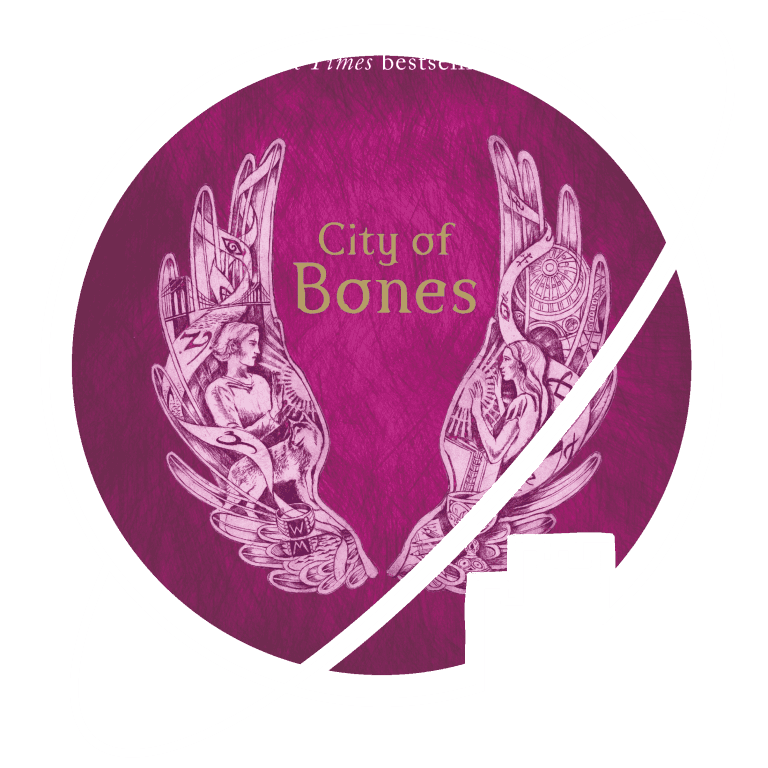

I picked this book up at the thrift store, years after having seen the show Shadowhunters on Netflix. I enjoyed the show. I remember it being a pretty inoffensive, typical YA urban fantasy. I’ll be honest, not much about the show really stuck with me, apart from perhaps what the characters vaguely looked like. I also remember discourse about how these books (or at least the character of Jace) apparently started out as Harry Potter fanfiction. It’s quite an interesting rabbit hole to go down, especially if we add the plagiarism accusations that have been leveled at Cassandra Clare in the past. I really enjoy exploring the context of a book and it’s author, and I think this context is probably the most interesting thing about City of Bones.
City of Bones felt incredibly empty to me. While I remembered the characters most from the TV-show, they are incredibly flat in the novel. Jace is just a vessel for the kind of quips that were funny when Buffy the Vampire Slayer did it, but are so awfully overused on the screen today that I can’t help but roll my eyes. Clary is uninteresting. Everyone else is just sort of there. I actually forgot about Simon, who had absolutely no place in this story. I don’t understand why he’s there all the time, when he does absolutely nothing to further the plot. I hated Simon. I hated him.
The story is also not particularly interesting. There is one twist near the end of the book that I find incredibly funny, but most of the story fails to keep me hooked. I could have thrown this book in a river at any point, and I wouldn’t have been remotely upset about not finding out how it ends.
There are five more books in this series, though it could probably have been cut down to three if Jace didn’t have to say something sassy every second sentence. Overall, I don’t know if there’s anyone I would recommend this book to. I guess it was an incredibly easy read, so at least it has that going for it.
Tagged:
See also:
- Book written by Travis Baldree
- Published 7 November 2023
- Prequel to Legends & Lattes
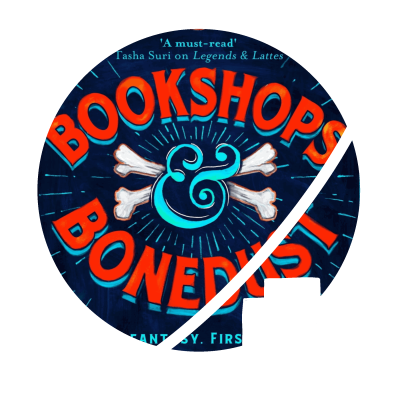

Listened to the audiobook with Travis Baldree himself – Like Legends & Lattes, well read.
Eh, shit.
Perhaps I shouldn’t have listened to Bookshops & Bonedust so quickly after I finished Legends & Lattes. Perhaps I should have known when I shut off the short story of Viv and her adventuring party actually in action that was an appendix to Legends & Lattes, and which was… eh.
In Bookshops & Bonedust, Baldree tries to repeat the trick he played with Legends & Lattes: we take our barbarian orc, place her in a contrasting setting, have her build up a small enterprise… we even have a ratfolk supporting character, and detailed descriptions of baked goods. What could go wrong?
Well. What goes wrong is that it just doesn’t work half as well the second time as it does the first. And what goes wrong is that if you add a lot of actual stakes to your book with a ‘high fantasy, low stakes’-tagline, it loses balance and stops working. What goes wrong is that we know Viv has a life of adventuring still ahead of her, and her in-and-out of her role as big brawny sword-swinging maniac just isn’t as convincing.
In fact, I feel Bookshops & Bonedust partly undermines Legends & Lattes in that Viv never refers back to her time at the bookshop in that, never acknowledges the inspiration she got from helping a small business on the verge of bankruptcy to relevance before. In fact, it undermines the very idea in Legends & Lattes that Viv is even trying something completely new, and her trepidations at the thought of gaining customers. And why would she be doing it without the people she met in Bookshops & Bonedust?
The bookshop-story itself is fun and scratches the right itches, though it is admittedly rather similar in set-up to Legends & Lattes. It still works though, and you really end up rooting for Fern, the bookseller.
But the throughline of the necromancer is annoyingly predictable and even somewhat dull. This is not the type of book where any of the characters you care about are in any danger, and you know it. It is not what I read this book for and it is not what this book is good at. It makes you rather feel like it could have been left out entirely. I wonder if I’ve ever read a book before where the climax was perhaps the least interesting bit.
Bookshops & Bonedust tries to expand beyond what Legends & Lattes offered, but I think in doing so, it loses a lot of what made Legends & Lattes worth recommending.
If you liked Legends & Lattes and you want more cozy fantasy, sure, give it a shot. Perhaps I’m overthinking it. Perhaps I’m being unnecessarily cynical. I don’t know. But Bookshops just feels like a cheap knock-off of Legends & Lattes, and I’m pretty disappointed. It is still fine, but nothing more than that.
Tagged:
See also:
- Book written by Hank Green
- Published 7 July 2020
- Part two of two
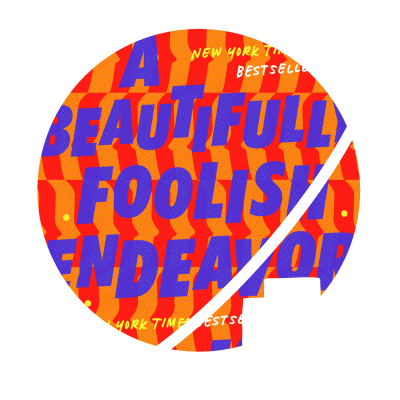

Like with my review of the previous book in this series, I want to say that this low rating is not because I think the book is plain bad – it was just a frustrating read for me. I do believe the book has an audience – that audience is just not me or people like me. Additionally, if you read my review of part one and still read that book, then my review of part two is not going to do anything for you, for I think people that loved the first book will love the second, and people that didn’t like it probably shouldn’t be interested in reading this one to begin with.
My main problem with An Absolutely Remarkable Thing was the prose, which is only alleviated very slightly in this sequel due to the fact that other characters get to speak more. I know other curators did find it easy to read, and it is, but it remains surprisingly hollow.
The book has a more conventional plot than the previous instalment, which was promising at first, but Green dodges the science-fiction questions and handwaves explanations, giving the impressions that the aliens’ science magic functions exactly as the plot demands. I am not necessarily a fan of Brandon Sanderson’s approach to storytelling, but Green would have done well to take a leaf out of his book here: Sanderson believes that a writer’s ability to solve a character’s problem through magic (or here, the aliens’ ‘science’) is directly proportional to a reader’s understanding of that magic. In this book, however, it is never made clear what the aliens can or can’t do, and as a result the actions required of the main characters feel completely random. In that, the A Beautifully Foolish Endeavour just feels a lot more poorly thought out than An Absolutely Remarkable Thing, which, though weird, was coherent in its plot and message.
The story continues asking questions on internet influence, and the second book adds questions on the influence of social media companies and the failure of governments to rein them in. These are relevant questions and if Green manages to gain an audience for them through his books, then all the more power to him. As works of fiction, though, I think they do not cut the mustard, and unless you are very interested in a book on social media, I would recommend you leave these alone.
Tagged:
See also:

Review: Starship Troopers – Robert A. Heinlein
The Earth is at war with several alien races. On a whim, rich kid Johnny Rico joins the Mobile Infantry on his 18th birthday, to serve a term and earn citizenship. But as he goes through bootcamp to join humanity’s greatest military outfit, and he trains for orbital drops on alien planets, his resolve is sorely tested.

Curator Question: Do you prefer books or films?
Another question for our curators: would they rather read or listen to a book, or have the story told through a television screen?

Review: Floating Hotel – Grace Curtis
The Grand Abeona Hotel is both space ship and resort, an interstellar cruise ship floating from system to system, providing old fashioned luxury to the well-to-do of each planet at which it calls. Its crew are a chaotic bunch of outcasts and refugees, forged into a well oiled machine (well, mostly) by kindly hotel manager Carl – who knows that each and every one of them has a story of their own. But even an out-of-this-world place like the Grand Abeona cannot escape the political realities of the galaxy. Some of the guests carry secrets – and even worse, perhaps so do some of the staff…
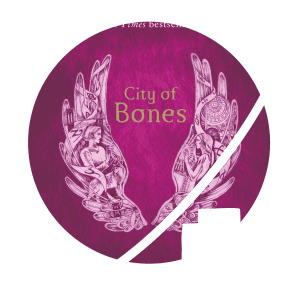
Review: City of Bones – Cassandra Clare
Clary is just a normal girl from New York City when she runs into a group of mysterious so-called shadowhunters on a mission to kill a demon. As her life becomes intertwined with theirs, Clary is forced to question her own life. She sees what dangers lurk in the shadows of New York City, and what some are willing to do for power.

Review: Bookshops & Bonedust – Travis Baldree
Prequel to Legends & Lattes – when orc barbarian Viv gets wounded in the search for a dangerous necromancer, she is sent to a local seaside town to rest and recover while the mercenary company continues the hunt without her. In the town, Viv befriends the local bookseller, who runs a dilapidated shop on the verge of bankruptcy. When Viv discovers the joy of reading, however, she makes it her mission to help the bookshop back on its feet.

Review: A Beautifully Foolish Endeavor – Hank Green
Andy Skampt, April May’s closest friend, struggles to find meaning in his life after April’s death and the disappearance of the Carls. When he receives a mysterious text message and finds a mysterious book of instructions, he is dragged into an equally mysterious game. When he finds out an old nemesis has grand plans, he and April’s other friends are forced into action once again.









